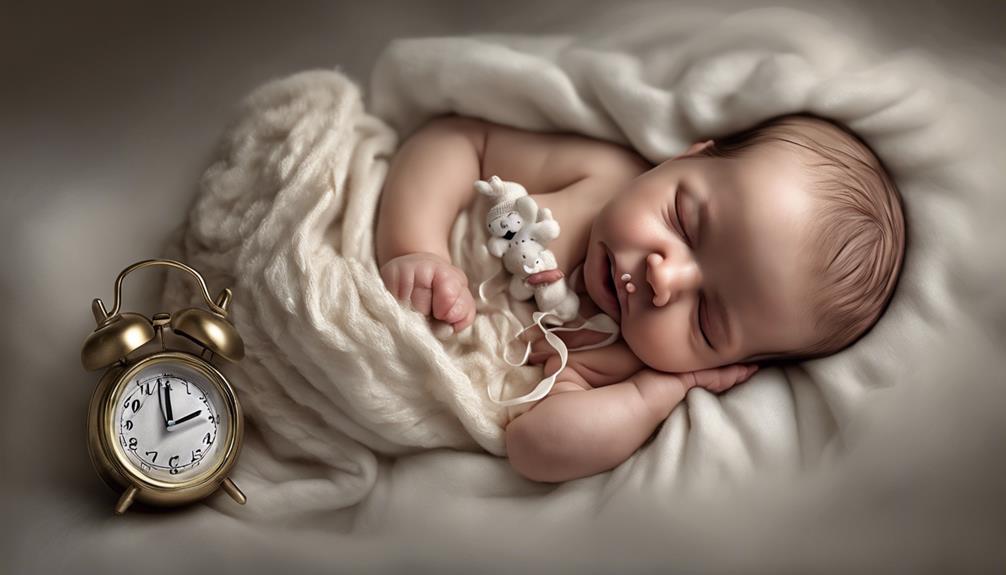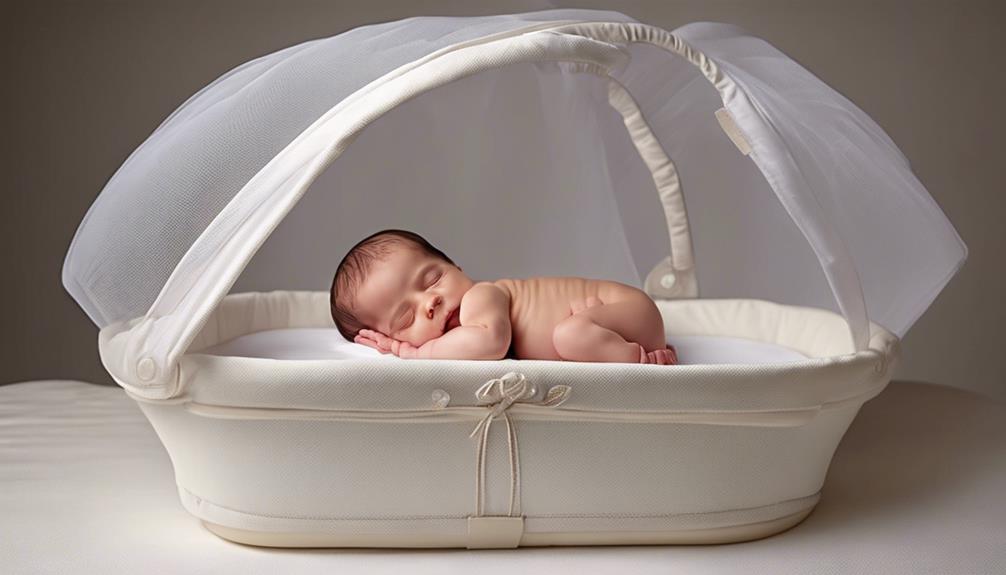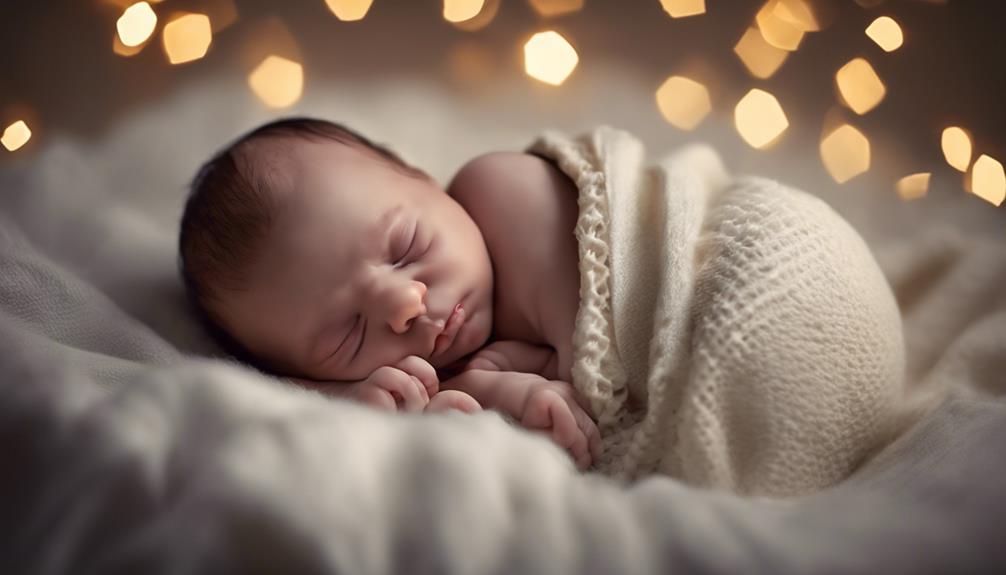Have you ever wondered why your newborn cries in her sleep? It's a question many parents ponder, and the answer may lie in a combination of factors that affect your baby's rest.
Understanding these reasons can help soothe your little one and improve everyone's sleep quality. From common causes like sleep cycles and teething pain to more unexpected factors such as dreaming or startle reflex, there's a lot to contemplate when it comes to your baby's nighttime tears.
Exploring these causes can provide valuable insights into your newborn's sleep patterns and behaviors.
Key Takeaways
- Newborn crying in sleep is normal during REM sleep transitions.
- Hunger or discomfort cues may trigger crying episodes during sleep.
- Startle reflex and teething pain can cause crying in newborns.
- Nightmares are rare, focus on creating a calming sleep environment.
Sleep Cycles and Newborn Crying
Exploring the sleep cycles and newborn crying reveals a fascinating insight into how infants adjust to their natural rhythms and developmental milestones. When newborns cry during sleep, it can often be linked to their rapid eye movement (REM) sleep, a vital part of their sleep cycle. These cries may signify changes between various stages of sleep, from light to deep sleep, as their bodies adapt to the demands of rest.
Teething pain is another common culprit behind nighttime tears, causing discomfort and restlessness in little ones. Overtiredness can also trigger crying episodes during sleep, indicating a need for more rest and comfort to soothe the baby. Importantly, crying in sleep is developmentally normal for newborns as they navigate through the intricate process of neurological development and sleep pattern adjustments.
Understanding these factors can help caregivers provide the necessary support and care to safeguard their newborn's well-being during these formative stages.
Hunger and Discomfort Cues
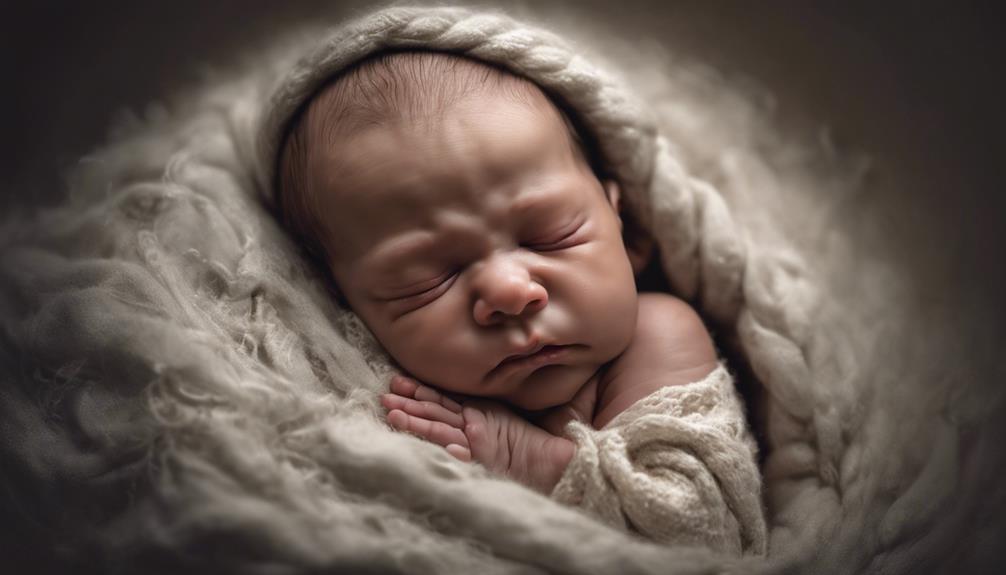
Hunger and discomfort cues in newborns can manifest through crying during sleep, signaling the need for prompt attention and care. Newborns have small stomachs and require frequent feeding, so crying during sleep could indicate hunger. Additionally, discomfort from issues like a wet diaper, temperature changes, or skin irritation may also lead to nighttime crying episodes. Understanding these hunger and discomfort cues is pivotal for caregivers to respond promptly and address the baby's needs effectively.
During sleep, babies might display rooting or sucking motions while crying, which are classic cues for hunger. Responding promptly to these signals can help soothe the baby back to sleep peacefully. By recognizing and addressing hunger and discomfort cues in a timely manner, caregivers can make sure that their newborn is comfortable and content, promoting better sleep for both the baby and themselves. Being attuned to these subtle cues allows for a more intimate and responsive caregiving experience, fostering a stronger bond between caregiver and baby.
Startle Reflex and Dreaming
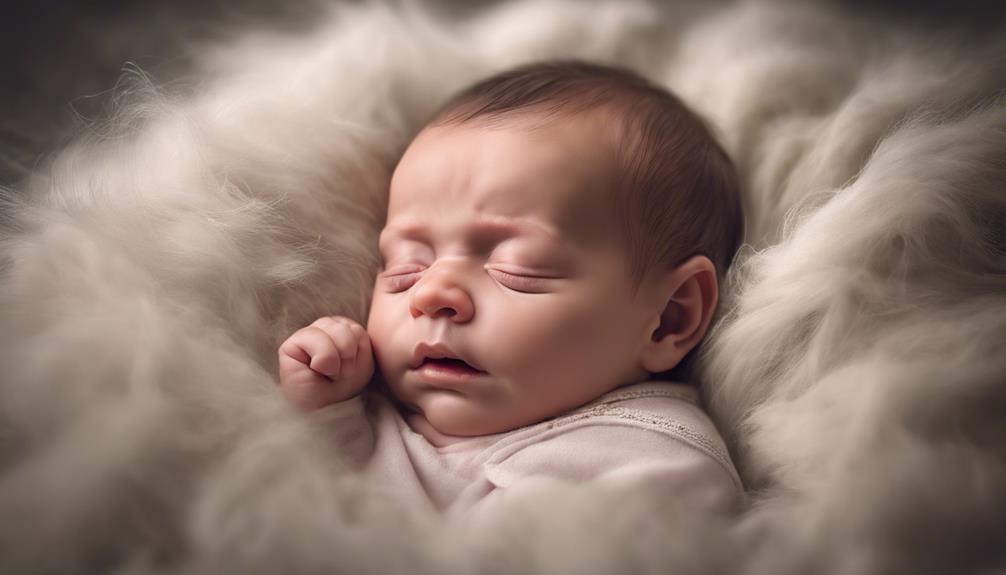
How can the startle reflex and dreaming impact newborns' sleep patterns?
Newborns often startle in their sleep due to the startle reflex, which can be triggered by sudden movements or noises. This reflex may cause them to jerk their limbs or even awaken crying.
During the REM sleep phase, when dreaming occurs, these sudden movements can be more pronounced, leading to crying episodes.
While it can be distressing for caregivers to witness their newborns crying in their sleep, it's important to understand that the startle reflex is a normal part of their development. In fact, the startle reflex is a sign that their neurological system is functioning correctly and helps them protect themselves.
Teething Pain and Crying
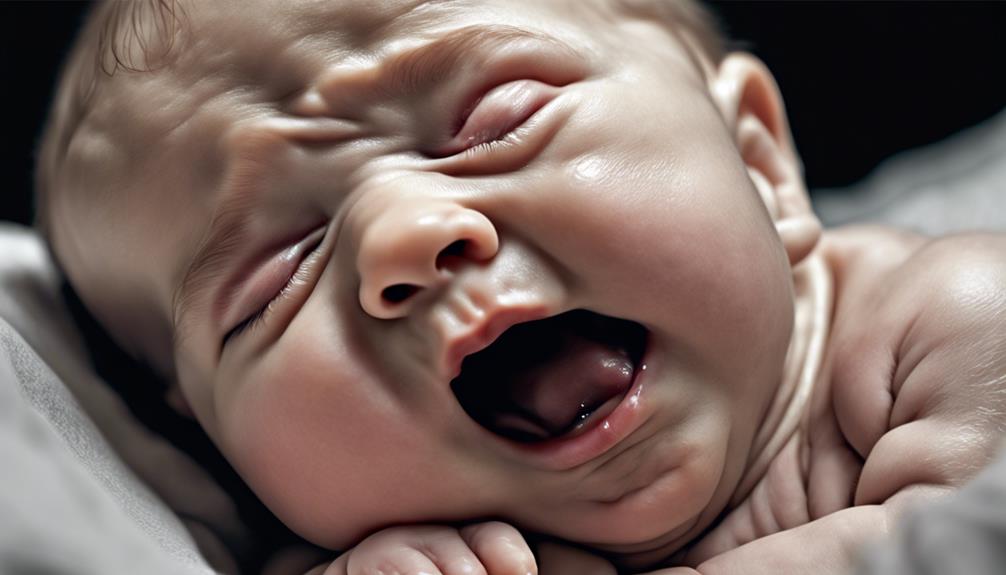
Teething pain can be a common cause of crying in newborns during sleep, often exacerbated by the discomfort of emerging teeth. The pressure from these new teeth breaking through their gums can lead to increased fussiness and disrupted sleep patterns for our little ones. It's heartbreaking to see them in pain, especially when it interrupts their much-needed rest. At night, teething pain may intensify, making our babies more prone to crying episodes during sleep. Along with the tears, you might notice excessive drooling and a tendency to chew on objects for relief.
To help ease their discomfort and reduce the crying, we can offer gentle teething remedies such as chilled teething toys or a clean washcloth for them to gnaw on. These simple strategies can provide some comfort to our newborns and make those sleepless nights a bit more manageable. Remember, teething is a natural process, but we can do our best to support our little ones through it.
Nightmares in Newborns
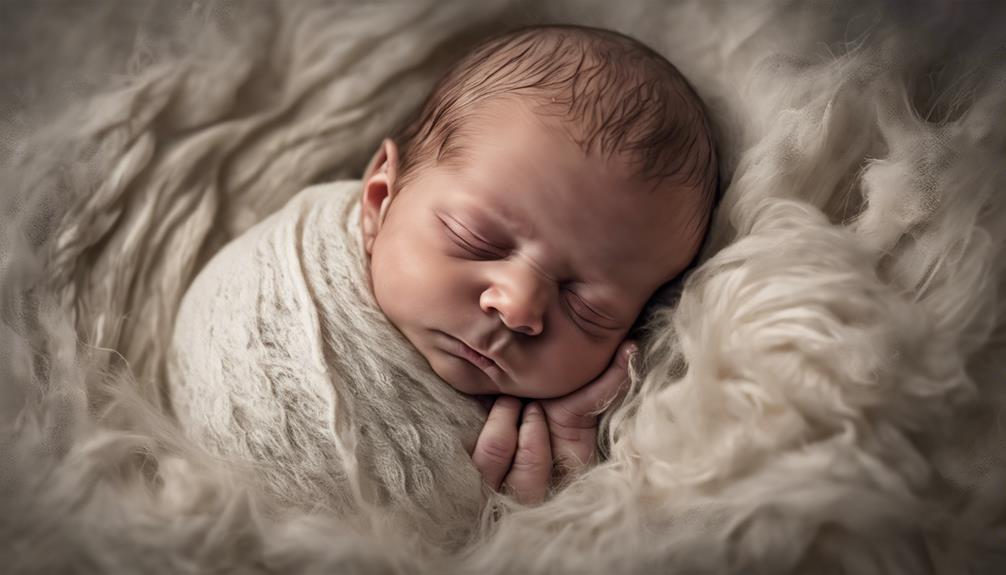
Nightmares are a rare occurrence in newborns due to their limited life experiences and underdeveloped memory capabilities. While it's natural for parents to worry when their newborn cries in their sleep, it's important to understand that newborns spend a significant amount of time in REM sleep, which isn't typically associated with nightmares. Crying during sleep is often part of their normal sleep cycles and changes between different sleep stages.
Unlike nightmares, night terrors are more common in older children and are characterized by sudden crying or screaming episodes during deep sleep.
Creating a calm and comforting sleep environment for newborns is vital when they experience nighttime disruptions. Newborns may not be aware of their crying, so providing a soothing atmosphere can help them feel secure and settle back into restful sleep. While nightmares are uncommon in newborns, being attentive to their needs and offering comfort when they wake up crying can help reassure both the baby and the worried parents.
Frequently Asked Questions
Why Does My Newborn Randomly Cry While Sleeping?
Sometimes newborns cry in their sleep due to normal sleep cycles or discomfort like teething. Remember, babies communicate through crying. It's common, and we're here to offer support and reassurance during these moments.
What Causes a Newborn Baby to Cry at Night?
Newborns cry at night for various reasons like REM sleep, changing sleep cycles, teething discomfort, and overtiredness. It's normal and often a way for them to communicate needs. Understanding these causes can help soothe our little ones.
Why Does My Baby Wake up Crying Out of Nowhere?
Sometimes babies wake up crying unexpectedly. We've learned that reasons can vary from sleep cycle changes to discomfort. Understanding triggers helps us soothe them. Our experience can guide you through these moments with empathy and solutions.
What Is a Neuro Cry?
Sometimes babies cry in their sleep due to a phenomenon called a neuro cry. It's a normal part of their sleep cycle, often occurring during changes between phases. Understanding this can help us support our little ones better.
Conclusion
In summary, understanding why newborns cry in their sleep is important for caregivers to provide proper care and support.
Whether it's due to changing sleep cycles, hunger, discomfort, teething pain, startle reflex, or even nightmares, knowing the common causes can help soothe and comfort our little ones.
By being aware of these reasons and responding with care and compassion, we can help promote healthy sleep habits and guarantee our baby's well-being.
